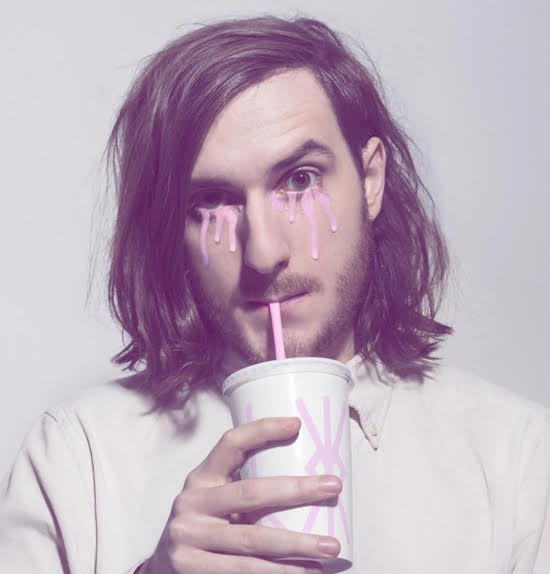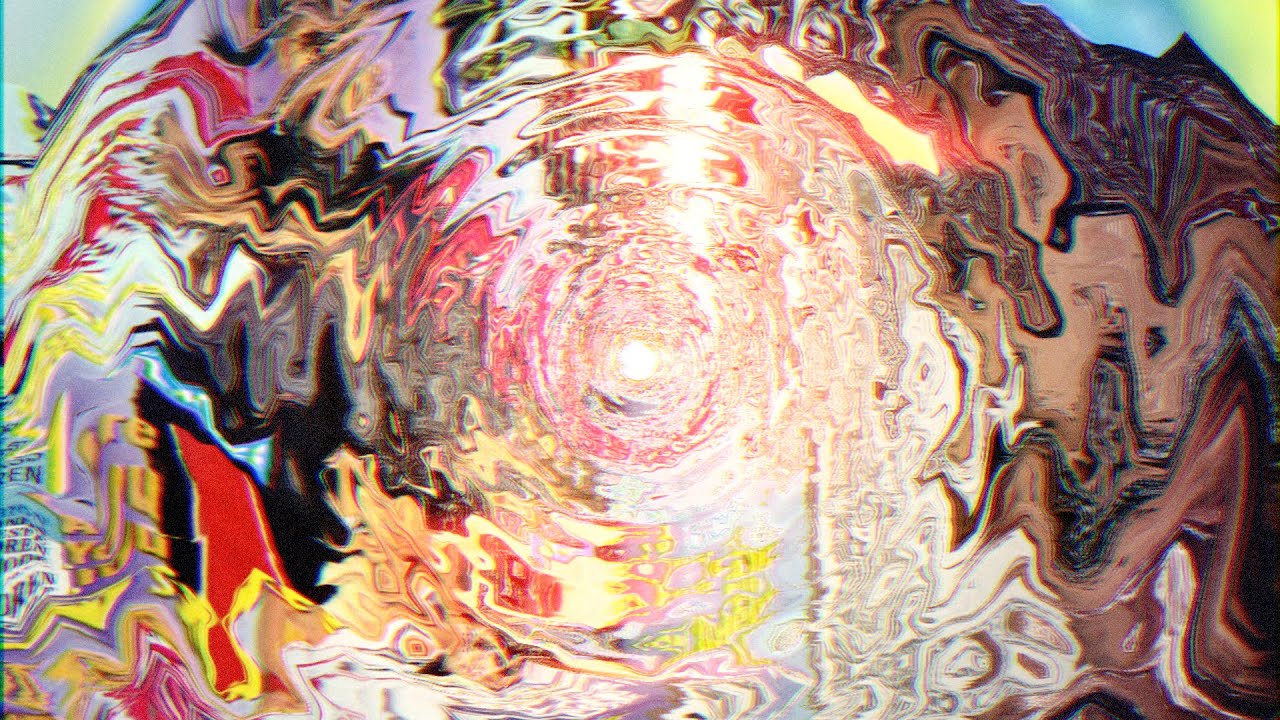I first heard Clarence Clarity’s crazed debut NO NOW, released back in March on Bella Union, one fateful and supremely hazy evening last spring in a dorm room, the title screen of a SNES JRPG looping across a busted CRT TV in the corner and no form of sustenance save for a bag of Candy Corn and a Slurpee. Sixty three minutes later the food was long gone, the album was over (at least in the sense that its final track was feeding cyclically back into its first) and my brains were splattered on the wall. My head sort of hurt.
With NO NOW, Clarence Clarity has built upon the singular universe first introduced on 2013’s SAVE †HYSELF EP, one glimpsed from the surreal, melted-VHS music videos and bizarre, vaguely messianic blog entries but best understood through his proper album, a dense, blown-out simulacrum of throwback pop. The experience is not unlike that moment in Ratatouille where the food critic snob eats the titular dish and gets his face melted off and his soul blasted back into his youth, except here the past is chipped and tipped into a hallucinatory nightmare of Hollywood, witch houses, reptiles and Catholics to name but a few of the record’s wiggy lyrical motifs.
Questions naturally surface. Is this the latest mutation of vaporwave? Should we take this music at face value or with tongue firmly in cheek? Is Clarence an actual human or just another low-polygon avatar à la PC Music’s menagerie of misfits? The enigmatic Clarence talked to the Quietus ahead of his appearance this Saturday (June 6) at Field Day, and, as it turns out, he’s a quiet, thoughtful chap devoid of pretension and driven not by a half-assed god-complex or post-post-irony but instead a disarmingly genuine ambition to craft great pop.
Know now, Clarence Clarity.
Hi Clarence. I’m a big fan of the new record and critically it’s been doing really well. What’s the hype been like?
Clarence Clarity: Thank you! I mean, I guess for me the feedback I get is on some level irrelevant because I do it for the moment when I’m making the music. What comes after I don’t feel like I’ve got control over either way. But I suppose it’s better that it’s sort of positive than universally panned! So yeah, it’s helpful. The more positive vibes I get back, the more chance I have to keep doing this. It’s nice on a practical level.
Were you aware of the Sudden Clarence Clarity meme when you decided on the name?
CC: I actually wasn’t. I’m not really involved with that side of the Internet, so I genuinely didn’t know. I just had a mantra of "clarity"; I had the word stuck on the wall in front me where I was working, just as a sort of meditation device. I didn’t want to stray from what I’d planned and seeing that word in front of me was basically a reminder to stick to it. When it actually came to properly deciding a name, I’d just been telling everyone I’d been doing this "clarity" project. It just felt right. But I didn’t want to just go as Clarity, I wanted to modify it. I wouldn’t say turn it into a character, but make it obvious at least that it’s just me, and Clarity by itself would have been too ambiguous. I don’t really feel it’s a character or an alter ego or anything, but I step into that name whenever it’s applicable, like when I step on stage or something. It’s still very personal.
Clarity’s definitely a uniting theme on the record and there’s quite a few more. Did you write NO NOW as a concept album?
CC: Hmmm, ooooh, I wouldn’t say it’s a concept record. Maybe on some levels, musically, it is, in a more abstract way, but lyrically, it’s definitely not. I approach the lyrics a lot more like dream fragments that don’t really make sense at first, but over the course of the album you should be able to put different themes together – the bubbling under of my subconscious for the last couple of years. I’m not trying to spread a lyrical message or anything like that, I just put a lot of thought into it. I wanted it to feel like some sort of journey, though that’s a little cliché. But you can sit down and listen to the whole thing and feel like you’ve seen a film or read a book or something on the same level as that. At the same time each individual song still holds its own.
It sounds like two back-to-back records.
CC: That as well. That was… I think that started because I liked the idea of a double album, I liked the idea that, in the digital age of music, that there are no constraints of format that you have to release something on, like a record or a CD. I deliberately made it 63 minutes long but I don’t really consider that a double album even though it did have to come out on a double album, vinyl-wise. It’s strange because people think it’s really long when it’s not. I like that difficult kind of aspect. I suppose it’s like an epic TV episode.
It really sounds influenced by the mainstream radio pop of the late 90s and early 2000s.
CC: Hmmm. Partly. I suppose. The massive "pop" term means all sorts of different things. I mean that’s definitely part of it, but not any more so than, for instance, electronica or Warp Records’ stuff. But that’s just part of the puzzle, really. It is important to me that there’s a top-line melody to every song. I always try and get my hook.
And then there’s that ‘Bloodbarf’ music video that plays on that pop theme.
CC: Yeah, my ‘Bloodbarf’ music video isn’t meant to be maybe as clever, but a lot of people think it’s clever. I think it comes off a bit pretentious. I wanted it to be just a little representation of the production values of the song. When I made that track, I was just imagining Justin Timberlake or any of those late 90s, early 2000s boy bands all melting slowly. So I just literally made a video of Justin Timberlake melting. I like making videos.
What has it been like translating these electronic songs to a live band?
CC: I thought it was gonna be a total nightmare. Making the record, I didn’t think about the live thing, really. I didn’t know how it would work. It wasn’t half as bad as I thought it would be, actually, because a lot of the energy and character from a lot of the songs is coming from the drums and this reoccurring bass. Getting that down, that offbeat swagger, swing, funk and finding a solid bass player was kind of half of the puzzle. And everything else is just chopping up all of the different elements of the production and coming up with the right sort of keyboard patterns and that.
What can we expect of the project in the future?
CC: I am doing a few festivals over the summer but they’re quite spread out, so I’ve got some time in between where I’m just getting back on writing stuff. I don’t necessarily know what that’ll end up being for. At this point I’m just making a bunch of tracks and we’ll see what happens. I can’t say what form it’ll take but I deliberately took about six months off doing anything creative just to clear the palette a little bit. I felt a little creatively exhausted after it. I’m just gonna be focusing on live stuff in terms of what people are gonna be exposed to for the next six months. But behind the scenes I’ll be pretty busy as well, writing ridiculous commercial pop music. Not to say that that’ll see the light of day.
Clarence Clarity plays the Quietus stage at Victoria Park’s Field Day this Saturday, June 6; for full details and tickets, head here



